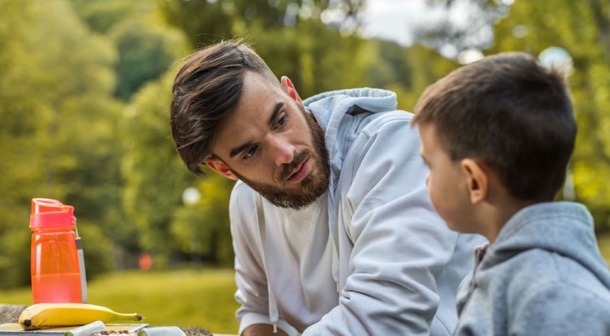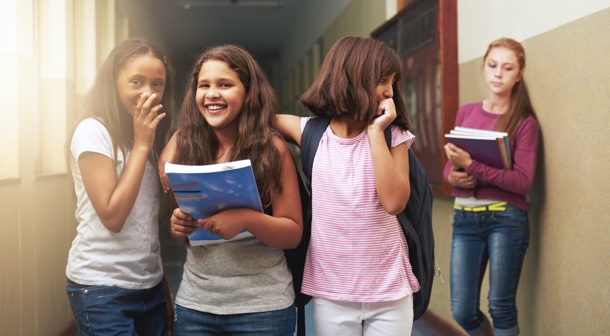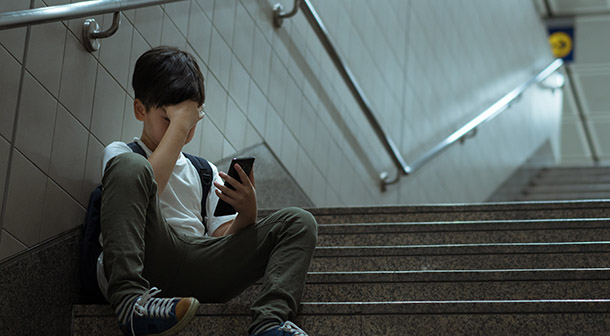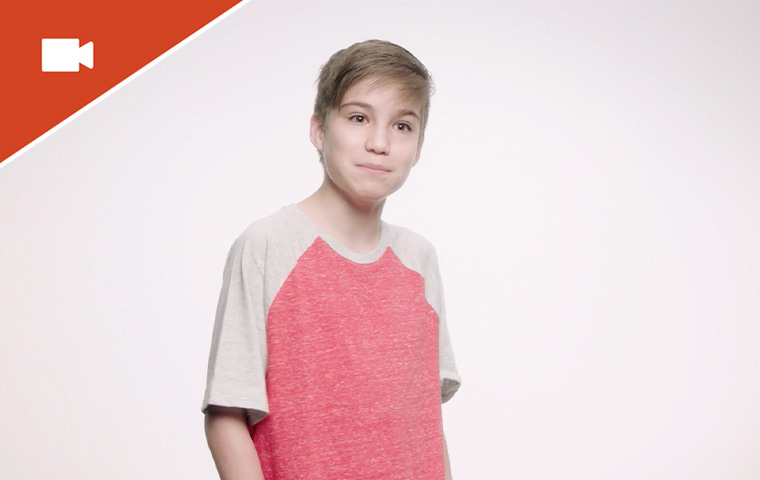How to Stop Bullying and Cyberbullying
By GetParentingTips.com staff
Read Time: 7 Minutes
Bullying is more common than you think. In 2017, about 20% of students ages 12–18 reported being bullied at school. Many parents, teachers, and kids need practical advice for how to stop bullying. The good news is that there are effective strategies for dealing with bullying.
If your child is being bullied, the first step is to listen carefully without overreacting or showing that you are shocked. Whether your child is the one who bullied, the one being bullied, or is seeing someone else be bullied, there are things you can do to help protect your child and stop it.

If Your Child Is Being Bullied
- Keep your cool and ask open-ended questions to get more information about what has been happening. If you act upset, your child may think you are upset with him (or her) and not realize you are actually upset that your child is being bullied.
-
Don't immediately take matters into your own hands by calling the parent of the child who is bullying. Help your child figure out a plan for how to stop the bullying.
- If possible, help your child find ways to avoid the child who is bullying or ways to avoid being alone with him (or her).
- Help your child identify an adult as a potential safety net. This might be a teacher, counselor, coach, or bus driver.
- Encourage your child to tell the child who is bullying to stop if he is comfortable doing so and it is safe. If he does not feel that he can speak up, or speak up safely, then he should find an adult to help him stop the bullying.
- Teach your child to use positive body language and practice it together. This means keeping your head up, making eye contact, and using a strong and confident voice. Use "I want" statements like, "I want you to leave me alone," or "I want you to stop that now."
- Children who bully often single out kids who are perceived as being different from their peers, do not get along well with others, or are perceived as less capable of defending themselves. If it's possible, encourage your child to find a buddy or stay in a group to provide bullying help and keep him from having to encounter a child who bullies alone.
- Find books or movies with characters in similar bullying situations so your child doesn't feel alone.
- Encourage your child to make friends with kids inside and outside of school.
- Meet with your child's teachers to make them aware of the problem and brainstorm on ways to solve it. Often, teachers may not be aware that your child is being bullied.
- Learn about your school's policies on bullying. Don't be afraid to talk to the school counselor or even the principal if the situation is not resolved.
- Think carefully before talking to the parents of a child who is bullying your child. This might be an option if you know them, think you can have a productive conversation and resolve the problem. However, it may not be a good option if you don't know the parents or if you think you or they might get upset by the conversation.
Many extracurricular programs like sports, cheerleading, and honors organizations have specific policies that prohibit participants from bullying or cyberbullying.

If Your Child Is Bullying Others
It can be very difficult, and unexpected, for a parent to hear that their child has been unkind. Try to remain calm and listen to the person sharing the information. Assure them that you will look into the issue, talk to your child, and take immediate action.
- Ask your child how he is getting along with others at school and determine if there is anyone he doesn't get along with, and why.
- Talk to your child about how he is feeling. Try to find out what is bothering him and what you can do to help him deal with any stress or concerns he is facing. If you're uncomfortable having this talk, find someone you trust to talk to your child. A family member, his doctor or a counselor could help you with this discussion.
- Find trusted adults who can provide bullying help. Meet with your child's teacher, school counselor, or principal to determine a plan of action to stop the bullying behavior.
- Teach your child acceptable ways to manage aggression or stress. These might include taking deep breaths, counting to 20 before speaking, or walking away from a situation.
- Help your child to learn the importance of apologizing and taking responsibility for his actions. Apologies can't be forced. If and when it is appropriate, make it clear that your child is expected to apologize in person for his unkindness.
- Set rules for bad behavior, including rules about being unkind to others. Put consequences in place, and follow through on enforcing them.
Who's More Likely to Bully?
There are two types of children who are more likely to bully others - those who tend to have a lot of social power and are overly focused on their popularity and those who are less connected with their peers and school and may not identify with the feelings or emotions of others.

If Your Child Sees Bullying
Someone who witnesses bullying is called a bystander. Bullying tends to stop when bystanders step in and become upstanders. An upstander is someone who interrupts or does something right then and there to stop the bullying. There are lots of ways that bystanders can become upstanders:
- Questioning the bullying behavior can sometimes feel safer than direct confrontation. If your child isn't comfortable telling the child who is bullying to stop, he might say something like, "Why are you messing with her?" or, "Why are you so grouchy?"
- Another strategy is to redirect the situation entirely, either by using humor or by drawing the attention of the child who is bullying to something else. Your child could say something like, "Don't we need to get to class?"
- Engaging directly with the person being bullied about something not related to the bullying can also help to change the subject and stop the bullying behavior. Even if it doesn't stop the bullying, this can be a comfort to the child who is being bullied and help him feel less alone.
- If your child doesn't feel comfortable intervening in the moment, encourage him to check in with the person who was bullied so he knows someone cares.
- Teach your children to stay away from anything that doesn't feel right, even if their friends are doing it.
- If they see physical fighting or weapons, kids should leave the area immediately and find an adult for help.
- Teach your child to be respectful even if others aren't, and not to get pulled into situations where others are talking or texting about people behind their backs.
If your child sees something, he should say something.
Studies have shown that just one upstander can help a person who is being bullied feel less alone.

Understanding Cyberbullying
In this digital age, cyberbullying, or online bullying, is increasingly common. The 2017 School Crime Supplement (National Center for Education Statistics and Bureau of Justice) reported that about 15% of students in grades 9–12 reported being bullied online or by text.
Because cyberbullying takes place online, it is often done anonymously. Cyberbullying can take place:
- On social media (Snapchat, Instagram, TikTok, Facebook, and Twitter).
- By text message.
- On instant messenger.
- Via email.
- On game or app platforms.
What Does Cyberbullying Look Like?
Cyberbullying can take many forms, but it is often when someone posts or shares harmful, false, or mean content about someone else. It can include sharing personal photos or private information that might embarrass or humiliate someone. Depending on the age of the people involved and what information is shared, cyberbullying can often be a crime.
Recognizing Cyberbullying
Because cyberbullying happens online, it's often largely invisible to parents. So how do you know if your child is being cyberbullied?
The warning signs of cyberbullying can include:
- Trouble sleeping.
- Changes in mood, avoiding social situations they previously enjoyed, or a noticeable increase or decrease in device use.
- Shutting laptops quickly, closing screen tabs, or hiding devices.
- Skipping school or faking sickness to avoid school.
- Falling grades.
Need parenting help now?
The Texas Parent Helpline is available 24/7.
- Call 833-680-0611
- Chat with us
- Text 833-680-0611
Preventing Cyberbullying
Preventing cyberbullying starts with paying attention. You can help protect your child from negative online content and interactions by monitoring what he is doing online. For example:
- Talk about social media and the internet openly and regularly so your child feels comfortable talking to you about things that happen online.
- Set family rules about digital behavior and what is appropriate. Kids shouldn't give out passwords or personal information like their name, address, or phone number. Remind children not to say anything online that they wouldn't say in person.
- Monitor your child's app usage and browsing history on all devices.
- Review or reset the location and privacy settings on any devices your child uses.
- Stay up-to-date on the latest apps, social media platforms, and digital slang used by children and teens.
- Know your child's user names and passwords for email, gaming, texting, and social media accounts.
- For teens who may have social media accounts, monitor their social media usage. Follow or friend your child on social media platforms and be aware that many teens have more than one account for each platform.
- Consider using parental control settings on devices to set daily time limits on your child's use of devices and apps. There are also free software options and apps that can help parents restrict content, block domains, or view children's online activities.
What Should You Do If Your Child Is Cyberbullied?
If you suspect your child might have been bullied online, try to gather as much information as possible. Knowing more about the bullying helps stop the unwanted contact.
- Talk to your child. Ask questions and try to find out what happened and who was involved. The most important first step a child can take if he experiences cyberbullying is to tell someone.
- If possible, ask your child to show you the threatening or hurtful texts or posts. Contact the police if the threat involves physical violence or a crime.
- Tell your child to not respond to cyberbullies. While ignoring a cyberbully is hard, this is an effective way to take away any power they have. Responding when upset will only make things worse.
- When possible, block the person bullying and always report the bullying to the social media platform, app, or school. Most platforms have a way to report offensive content or have it removed.
- Take screenshots of all interactions and keep copies in case further intervention is needed, such as legal action or action taken through the school.
- Talk to your child to determine what type of support he needs and what he feels is the best course of action to resolve the cyberbullying. Cyberbullying removes a sense of control from your child. By including him in the solution, you're helping him regain control.
- After you and your child come to a decision on what action needs to be taken it is important that you act immediately so he knows you can and will support him through this.
- Notify your child's school if a classmate is the cyberbully.
- Cyberbullying can escalate. If the steps you and your child decide on do not stop the cyberbullying, it is important to speak up for him until you find someone who can help, whether it's the school, the application platform, or law enforcement.
Even if the cyberbullying did not happen during school hours, most schools like to be aware of it, so be sure to notify your child's school.

Open Communication About Bullying Helps Prevent It
Try to keep lines of communication open with your child. Check in regularly with a text after school, or ask about who he sat with at lunch. Find out who attended your child's practices and games. Ask about who fits in at school and why or why not, and who he interacts with in person and online.
When your kids feel comfortable talking openly to you, it's easier to detect changes in their moods or behavior. Show your child that you are patient and interested, and he will know it's safe to come to you.
Remember that a lot of parents have gone through this and if you take steps to address cyberbullying, things will get better.
For More Information
Download and print these helpful tip sheets from our Parent Resource Library:




